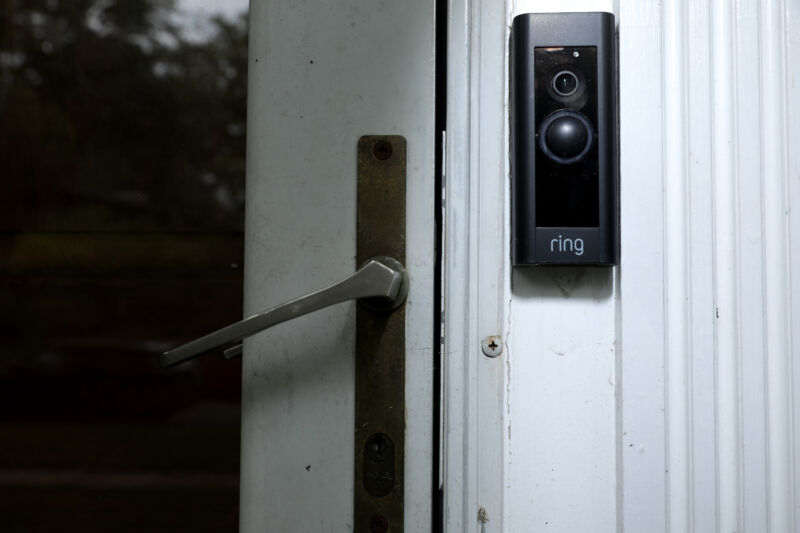
Almost 1,000 police and sheriff departments around the country have partnership agreements with Ring, Amazon's home surveillance subsidiary. These arrangements are now drawing scrutiny from a division of the House Oversight Committee, which wants to know what, exactly, Ring is up to.
For starters, Congress wants a list of every police deal Ring actually has, the House Subcommittee on Economic and Consumer Policy wrote in a letter (PDF) dated February 19.
After that, the Subcommittee wants to know... well, basically everything. The request for information asks for documentation relating to "all instances in which a law enforcement agency has requested video footage from Ring," as well as full lists of all third-party firms that get any access to Ring users' personal information or video footage. Ring is also asked to send over copies of every privacy notice, terms of service, and law enforcement guideline it has ever had, as well as materials relating to its marketing practices and any potential future use of facial recognition.
And last but not least, the letter requests, "All documents that Ring or Amazon has produced to state attorneys general, the Federal Trade Commission, the Department of Justice, or Congress in response to investigations into Ring."
Wide net for a reason
The scope of Ring's partnerships with police was at first kept very hush-hush. Reporters and researchers working through the summer of 2019 managed to pull together lists of between 200 and 300 such agreements. About six months ago, in late August, the company finally went public with a list of 405 police deals.
Several times per month since, the list has been updated with dozens of new additions. The most recent is now more than one week old, but as of February 13, the map shows 967 active arrangements with police in all but a small handful of states. (Wyoming, Montana, North Dakota, South Dakota, and West Virginia appear to be the exceptions.)
In the course of those six months, Ring has repeatedly come under fire for its security, privacy, and marketing practices. For example, the company in the fall pulled together a feel-good promotional video comprising images of children ringing Ring doorbells to trick-or-treat on Halloween. It is unclear if Ring sought consent to use any of the clearly visible images of the children or their parents shown in that video (the company did not respond to media requests for comment). And while Ring's terms of service for users do allow for such usage of captured footage, the homeowners are the ones who made those agreements—not the trick-or-treaters in the video.
Ring has also faced pressure to describe its plans for future integration of facial recognition systems into its devices. While the company has stated repeatedly that it has no such integration, documents and video promotional materials obtained by reporters in the past several months show that the company is strongly looking into it for future iterations of the system.
And all of that doesn't even get into the extremely granular location data that leaks from uploaded footage, the sharing of personal data with third-party firms, the vulnerability that exposed network passwords, or the wave of intrusions into users' devices in December and January attributable in part to lax account security (fixed this week).
The request from the House Oversight subcommittee is an entirely separate congressional probe from the investigation Amazon has been facing in the Senate since September. The first exchange with senators revealed that police can do whatever they want with Ring footage, keeping it as long as they see fit and sharing it with whomever they please. In the second, Amazon admitted Ring has had to fire at least four employees for snooping on user videos.
The House letter gives Amazon a deadline of March 4 to respond with all the requested documentation.
reader comments
51